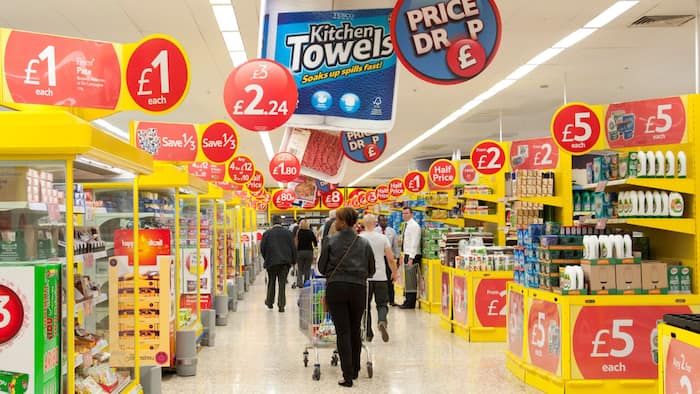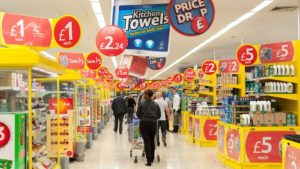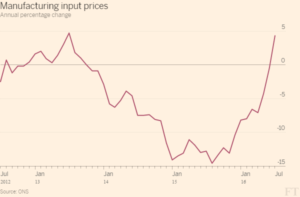CPI rises by 0.6% and costs for factories have risen sharply The plummeting pound has sharply increased costs for British factories since June’
CPI rises by 0.6% and costs for factories have risen sharply
The plummeting pound has sharply increased costs for British factories since June’s vote to leave the EU, with new data showing prices of oil, metals and other supplies needed by manufacturers increasing for the first time in nearly three years.
The Office for National Statistics said on Tuesday that input prices rose 4.3 per cent in July, the first annual increase since September 2013. There were double-digit rises in the cost of some goods, with the price of imported food up 10.2 per cent and imported metals 12.4 per cent higher.
Economists said the new data meant that while inflation has yet to trickle down to most everyday consumers, shoppers and businesses are likely to see price increases throughout the year.
Sam Hill, economist at RBC Capital Markets, said the main message was that inflation “is on an upward trajectory”; Suren Thiru, head of economics at the British Chambers of Commerce, said he expected the new data to “be the start of a prolonged period of increasing prices”.
The new data also raised new questions about whether companies can boost their cheaper exports by enough to compensate for the increased costs.
Victoria Clarke, economist at Investec, said the July price increases were “notable” and the Bank of England must now decide whether “the sharp and quick step-up in input prices suggests some greater upside price pressure ahead”.
The BoE is having to balance the need to support the economy with its mandate to deliver inflation of 2 per cent. It recently unveiled a package of interest rate cuts and a new bond-buying programme in an attempt to stimulate the economy. In the short term at least, it intends to prioritise growth over inflation.
All of the measures of inflation recorded by the ONS were up in July, in the first set of official data since the vote to leave the EU.
The consumer price index rose by 0.6 per cent, its highest since November 2014 — although still low in a historic context. The increase was caused by items that typically respond quickly to exchange rate movements, such as fuel and alcoholic drinks.
Ruth Gregory, economist at consultancy Capital Economics, said she expected inflation to “climb steadily this year”, pointing out that in addition to the impact of the weaker pound, the effect of historic falls in food and energy prices will continue to wane.
The retail price index, which is no longer an official statistic as it has been judged not to meet international standards but is still used to uprate some investments, rose to 1.9 per cent.
This is bad news for commuters. Regulated rail fares are linked to the July RPI figure, meaning travellers will face price increases of more than double the CPI rate of inflation.
Student loans are calculated on the March RPI figure, so will be unaffected by the latest data.
fonte Financial Times



